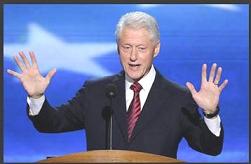The Huffington Post reports that the Obama administration and members of Congress are pressing India to curb its generic medication industry at the behest of U.S. pharmaceutical companies. Zach Carter – the Post’s senior political economy reporter – recalls that before Indian companies rolled out generic versions priced at $1 a day, AIDS medication cost about $10,000 per person per year.
Last week, a House subcommittee held a hearing on international trade disputes with India which heard Pfizer’s complaints about Indian policies that have fostered the country’s billion-dollar generics industry.
 In 2001, Indian generic drug manufacturer Cipla’s supply of HIV and AIDS drugs brought the cost of medication down to $1 a day, which, health experts say, saved millions of lives this past decade.
In 2001, Indian generic drug manufacturer Cipla’s supply of HIV and AIDS drugs brought the cost of medication down to $1 a day, which, health experts say, saved millions of lives this past decade.
However, as India’s generic industry – which sells its drugs in many ‘industrialised’ countries – has cut into profits for Pfizer and other U.S. and European drug companies, these companies have sought to impose ‘aggressive’ patenting and intellectual property standards in India, granting the firms monopoly pricing power over new drugs.
There have been two recent landmark court decisions:
 Last year, India’s Patents Office issued a ‘Compulsory Licence’ under the Indian Patent Act, in compliance with the TRIPS agreement of the World Trade Organisation, permitting a generic manufacturer, Hyderabad-based Natco Pharma, to produce a cheaper version of a liver and kidney cancer drug, Nevaxar, patented by Bayer AG which was charging $5,000 a month for the drug, while only servicing about 2% of the population that needed it. The generic version was priced at $157 a month.
Last year, India’s Patents Office issued a ‘Compulsory Licence’ under the Indian Patent Act, in compliance with the TRIPS agreement of the World Trade Organisation, permitting a generic manufacturer, Hyderabad-based Natco Pharma, to produce a cheaper version of a liver and kidney cancer drug, Nevaxar, patented by Bayer AG which was charging $5,000 a month for the drug, while only servicing about 2% of the population that needed it. The generic version was priced at $157 a month.
India’s Supreme Court has also rejected a patent on a Novartis leukemia drug called Gleevec (or Glivec), clearing the way for cheaper generic production. Novartis had filed for a patent on an updated version available in pill form, a practice known as “evergreening,” and frowned upon by the World Health Organization. India’s highest court turned down the application on the grounds that the delivery format did not constitute a legitimate innovation. Betwa Sharma wrote in May: “Manish Sarvaiya, 42, who suffers from chronic myeloid leukemia, is thrilled with the judgment because he can now continue to purchase his monthly supply of anti-cancer drugs from CPAA for 1,850 rupees a month or about $20”.
 Former President Bill Clinton also adopted hostile policies during his presidency toward the introduction of generic AIDS medications in Africa, only relenting when activists disrupted campaign events over the issue.
Former President Bill Clinton also adopted hostile policies during his presidency toward the introduction of generic AIDS medications in Africa, only relenting when activists disrupted campaign events over the issue.
Clinton later came to regret this and continues to be very active on international AIDS relief efforts through the Clinton Global Initiative.
–
But note the example of Japan, said to be the world’s second largest market for pharmaceuticals, which prefers to trust its own manufacturers and is resisting the advances even of ‘branded generics’, Big Pharma’s compromise offering.
Recent Comments